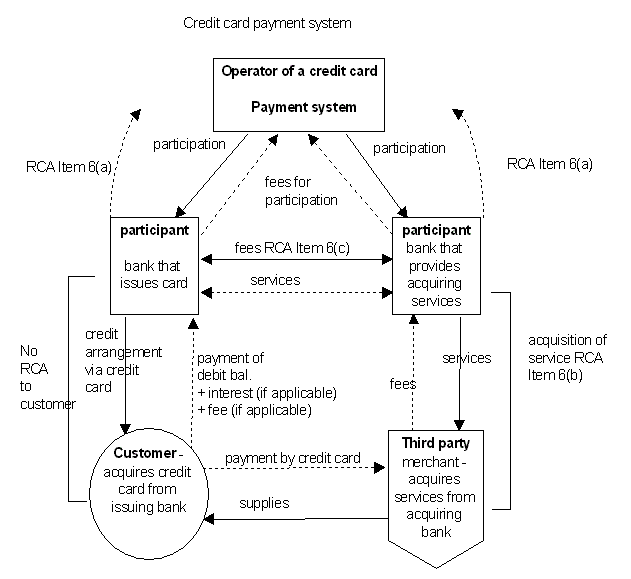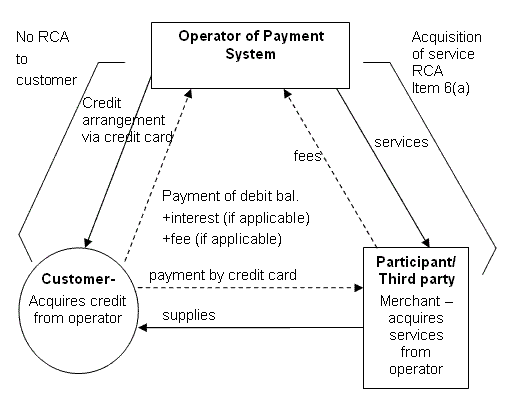Goods and Services Tax Ruling
GSTR 2004/1A3 - Addendum
Goods and services tax: reduced credit acquisitions
-
Please note that the PDF version is the authorised version of this ruling.View the consolidated version for this notice.
Addendum
This Addendum is a public ruling for the purposes of the Taxation Administration Act 1953. It amends Goods and Services Tax Ruling GSTR 2004/1 to clarify the role of a merchant in a payment system, for the purposes of items 6 and 8 of the table in subregulation 70-5.02(2) of the A New Tax System (Goods and Services Tax) Regulations 1999. The amendment reflects the views of the Full Federal Court in Commissioner of Taxation v. American Express International Inc; and Commissioner of Taxation v. American Express Wholesale Currency Services Pty Limited [2010] FCAFC 122; 2010 ATC 20-212.
GSTR 2004/1 is amended as follows:
Omit the paragraphs; substitute:
10. This Ruling explains the Commissioner's view of the law as it applied from 1 July 2000. You can rely upon this Ruling on and from its date of issue for the purposes of former section 105-60 or section 357-60 of Schedule 1 to the Taxation Administration Act 1953 (TAA).
11. Changes made to this Ruling by Addenda that issued on 30 May 2007, 2 July 2008 and 18 January 2012 have been incorporated into this version of the Ruling.[1A] You can rely on the changes made to the Ruling by each Addendum for the purposes of former section 105-60 or 357-60 of Schedule 1 to the TAA (as applicable) from the date of issue of the relevant Addendum. If the Addendum conflicts with a previous private ruling that you have obtained, the Addendum prevails.
After the paragraph; insert:
246A. A payment system may be either an 'open loop' system (also referred to as a 'four-party' system), or a 'closed loop' system (also referred to as a 'three-party system').[39A]
246B. A transaction in an open loop system involves four main parties: the cardholder, the cardholder's financial institution (issuer of the card), the recipient of the funds (the merchant) and the merchant's financial institution. The following diagram illustrates how an open loop payment system operates:[39B]
246C. Closed loop systems consist of a network under which the operator of the system also performs the functions that would have been undertaken by the cardholder's financial institution and the merchant's financial institution in an open loop system. A transaction in a closed loop system involves three parties, namely the cardholder, the merchant and the operator of the system, which issues cards to cardholders. The following diagram illustrates how a closed loop payment system operates:
Omit the paragraph, insert:
249. In the context of an open loop payment system, a participant is a financial intermediary that provides payment services to customers (such as a bank, building society or credit union ). Consequently, the customers of financial intermediaries, such as account holders and merchants, are not participants in such a payment system for the purposes of item 6. However, merchants are participants in a closed loop system where they acquire access to the payment system, and a right to receive payment, directly from the operator of the system.[39C]
Omit paragraph; substitute:
251. In the context of a payment system, a third party is an entity charged a fee in relation to access to the system. Third party refers to merchants that require access to payment systems to offer customers payment options for the purchase of goods and services.[39D] The fees charged to the third party are commonly known as merchant fees. A cardholder is not a third party because it does not acquire access to the payment system.
(a) Omit the heading; substitute:
Item 6(a) - fees charged by the operator of a payment system to a participant in the system - open loop payment system
(b) Omit 'Acquisitions of supplies' in the first sentence; substitute 'In an open loop payment system, acquisitions of supplies'.
(c) Omit 'in a payment system' in the second sentence; substitute 'in an open loop payment system'.
Omit heading and paragraph; substitute:
Item 6 - fees charged to a merchant
253. Acquisitions of supplies by merchants in respect of a payment system to which item 6 applies, include, but are not restricted to, those to which the following fees apply:
- •
- fees[40] from merchants for sales processed by credit and debit cards;
- •
- services fees;
- •
- merchant annual fees;
- •
- merchant transaction fees;
- •
- merchant monthly processing fees;
- •
- imprinter and card terminal rental;
- •
- fees for installation and management of terminals; and
- •
- charges to merchants for telecommunications line rental.
In an open loop payment system, the merchant who is a third party acquires these supplies from a participant and item 6(b) is applicable. In a closed loop system, the merchant is a participant and acquires these supplies from the operator and item 6(a) is applicable.
Omit heading and paragraph.
Omit 'in a payment system' in the second and third sentences; substitute 'in an open loop payment system'.
Omit 'in a payment system' in the second sentence; substitute 'in an open loop payment system'.
Omit 'in a credit card payment system' in the first sentence; substitute 'in an open loop credit card payment system'.
Omit 'in a payment system' in the first sentence; substitute 'in an open loop payment system'.
Omit the second sentence; substitute:
As discussed at paragraph 251 of this Ruling, the expression third party refers to merchants that require access to payment systems to offer customers payment options for the purchase of goods and services. For example, a life company that accepts credit card payments for life insurance premiums is a third party. The fact that a merchant may also be described as a participant in a closed loop system for the purposes of item 6(a) does not prevent the merchant being a third party for the purposes of item 8.
Omit 'draft'.
(a) Omit the entries that refer to paragraph numbers:
| Item 6(a) - fees charged by the operator of a payment system to a participant in the system | 252 |
| Item 6(b) - fees charged by a participant in a payment system to a third party in relation to access to the system | 253 |
| Diagram - how a payment system operates | 255 |
(b) Insert:
| Item 6(a) - fees charged by the operator of an open loop payment system to a participant in the system | 252 |
| Item 6 - fees charged to a merchant | 253 |
Omit:
- -
- TAA 1953 37
Insert:
- -
- TAA 1953 357-60
Insert:
- -
- Commissioner of Taxation v. American Express International Inc; Commissioner of Taxation v. American Express Wholesale Currency Services Pty Limited [2010] FCAFC 122
- -
- Visa International Service Association v. Reserve Bank of Australia (2003) 131 FCR 300
The Addendum amends GSTR 2004/1 to state the Commissioner's view of the law both before and after its date of issue.
Commissioner of Taxation
18 January 2012
Footnotes
Refer to each Addendum to see how that Addendum amends the Ruling.
See [71] to [73] of Visa International Service Association v. Reserve Bank of Australia (2003) 131 FCR 300 for a discussion on open loop and closed loop systems.
In this diagram and the diagram following paragraph 246C, RCA refers to reduced credit acquisition.
See [181] of Commissioner of Taxation v. American Express International Inc; Commissioner of Taxation v. American Express Wholesale Currency Services Pty Limited [2010] FCAFC 122; 2010 ATC 20-212.
See Attachment A to the Explanatory Statement to A New Tax System (Goods and Services Tax) Amendment Regulation 2000 (No. 2) which discusses items 6, 7 and 8 of the table set out in subregulation 70-5.02(2). It states: 'A third party will generally be a party such as a merchant and does not refer to a consumer.' Even though in a closed loop system a merchant can be described as a participant, consistently with the Explanatory Statement a merchant can also be regarded as a third party.'
Including those fees that are expressed as a discount.
References
ATO references:
NO 1-3IULDNE


